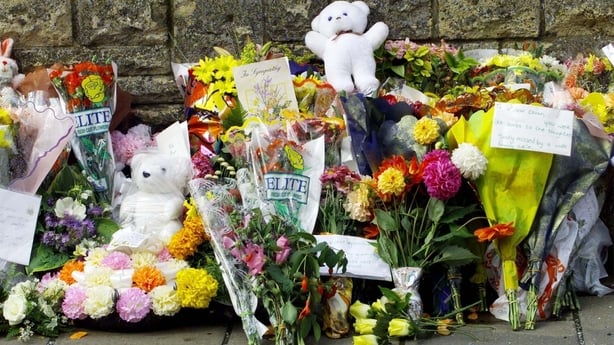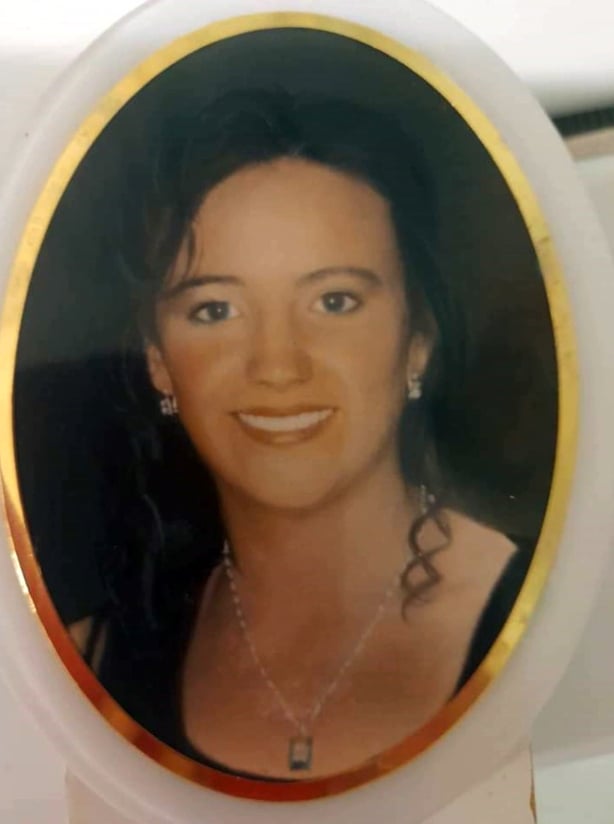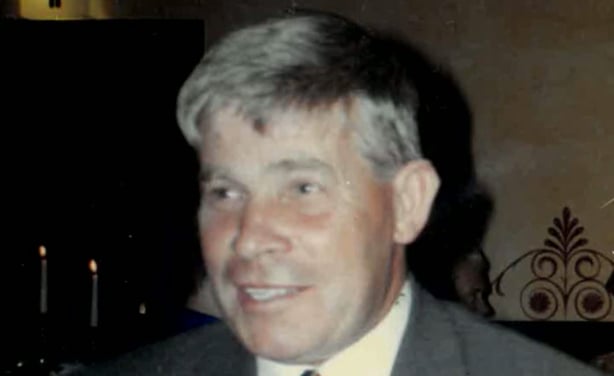The brother of a young GAA star murdered in the Omagh bombing has given emotional evidence to the public inquiry about his family's devastating loss.
The inquiry is looking at whether the 1998 attack, which killed 29 people, including the mother of unborn twins, could have been prevented.
Cathal Logue spoke about his sister, Brenda Logue, who was 17 and the only daughter of four siblings.
She was a talented Gaelic footballer who made the Tyrone minor and senior panels. Since her death, a junior championship cup has been named in her honour.
Brenda's mother Mary was diagnosed with terminal cancer last year and died in November. She had written a statement before her death, which Cathal read to the inquiry.
In it, Mary spoke of the special relationship she had with her only daughter and how much she had missed out on not seeing her grow up.
She had been with Brenda in Omagh on the day of the bombing.

Mary said the last thing she remembered was watching her daughter's ponytail swinging as she left a shop to see what was going on in the street.
"The blast would throw me back into a wall and I would be knocked unconscious, or so I was told," her statement said.
"When I came around, I knew in my heart she was gone. But I got up and went outside to look for her.
"It was like a scene from a disaster movie. I won't go into detail, but the things I saw that day are the things that will haunt my dreams, the sounds, the screams."
In her statement, Mary Logue spoke of a principled young woman.
Brenda had led a campaign at her secondary school to allow girls to wear trousers. She told management it was unfair that girls should be cold.
"She had great potential, as I was told by many, and I often wondered how far she would have went," Mary said.
"Tyrone ladies went on to win the All Ireland in 2018. Would she have been part of that set up? Would she have walked the Hogan Stand steps to lift the All-Ireland trophy?"
A number of club and county competitions were named in her daughter's honour. One of the trophies was won by a niece of Brenda's in later years and the team brought the cup to her graveside in tribute.
Omagh inquiry: The victims remembered
Mary said the murder of Brenda had affected generations of her family and her 13 grandchildren grieved for an aunt they had never met.
"They see her picture and hear the stories and visit her grave," the statement said.
"How do you explain to young children at four, five, six and even seven, how their auntie Brenda died? How can a child comprehend that?
"When the older ones come of age and learn the truth and begin to ask questions of why, we relive it all over again."
Mary also questioned whether her cancer would have been caught earlier if her only daughter had still been alive and whether it had been brought on by the stress of her murder
She spoke about how she had cleared her daughter's "messy" room, had bagged everything up - "even the rubbish on the floor" - and put it in the attic.
"Everything and anything she had ever owned or even touched. It's still in the attic. I couldn't bear to look at it."

A statement by the mother of 17-year-old Jolene Marlow was also read to the inquiry by a legal representative.
Bridie Marlow said her daughter, who was the eldest of five children, was academically talented and an excellent sportsperson.
Shortly before she was murdered in Omagh she had helped her club win their first county title.
She wanted to be a sports psychotherapist and was about to begin a course of study in Belfast.
"We always secretly dreaded the thought of Jolene being in Belfast in case the Troubles would flare up," her mother said.
"Little did we know then that our home town of Omagh, where Jolene had attended school, had a part-time job, was learning to drive, socialised and shopped, would be the actual place where she would be denied all her hopes and dreams of her bright future."

Brian McCrory was remembered in a statement by his daughter Louise, who described him as a "gentle giant" with a "beautiful open smile that made you feel safe".
She told the inquiry how his children had gone to his grave on the morning of their weddings "to be able to share a part of the day with him".
Instead of his presence at the wedding celebrations, they had a picture of their father on the table.
"It's impossible to explain how important he was to all of us and how much his presence was and is missed in our daily family life," she said.
Brian loved to take pictures and had gone to Omagh the day of the bombing to leave in films to be developed.
He was described as a natural with children with whom he had a great affinity.
The family had missed out on the simple pleasure of "just being together".
"We have missed out on so many things post 15 August 1998 as a family," Louise said.
"Our family events are overshadowed by an immeasurable loss and always a constant awareness of a missing husband, father, and friend. Our gentle giant."
She said he was much more than a name on a list or a face in a collage of beautiful faces of those who died in the bombing.
Over the last two weeks, family members of the 29 victims have been giving accounts of their loved ones to the inquiry, setting out the scale of the devastation caused by the bombing and their sense of loss.
Yesterday, Michael Gallagher, who was the driving force in the establishment of the hearings, gave evidence about his 21-year-old son Aiden.
He said the Real IRA bombers had been "freedom takers" rather than the freedom fighters they had presented themselves as.
We need your consent to load this rte-player contentWe use rte-player to manage extra content that can set cookies on your device and collect data about your activity. Please review their details and accept them to load the content.Manage Preferences







